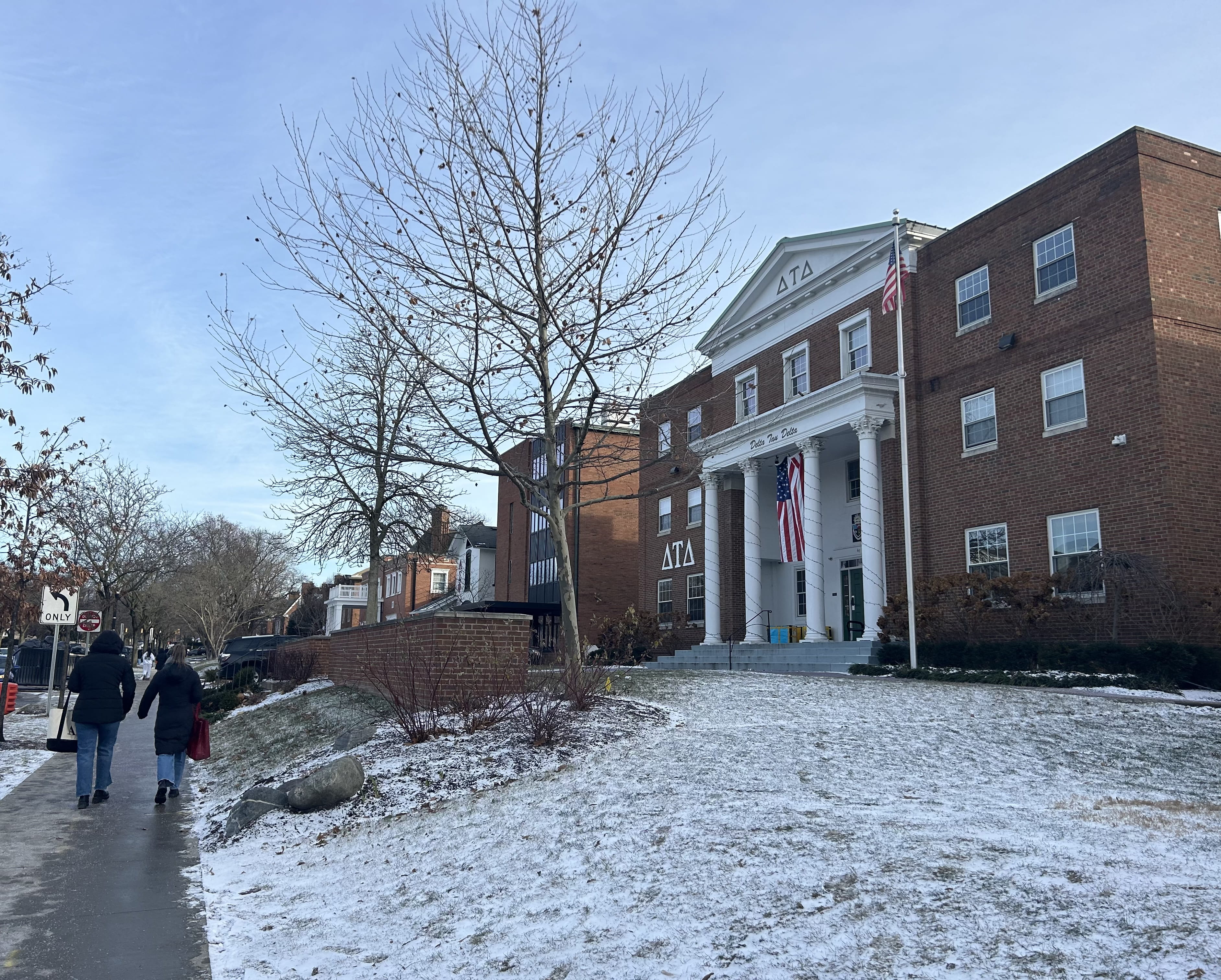
Delta Tau Delta, located at 67 E. 15th Ave., is one of 29 university-affiliated social fraternities governed by IFC. Credit: Brooke Tacsar | Lantern Reporter
Ohio State’s Interfraternity Council is spearheading the transformation of its educational program topics under Greek Life’s standards of excellence to focus more on men’s health and wellness.
The council’s standards of excellence initiative — a program established in 2001 to improve Greek Life’s development and growth — will be altered to include presentations on more complex topics like male privilege, Mitch Howard, the Interfraternity Council’s director of diversity, equity and inclusion, said.
“Previously, those sessions were kind of base level [and] not very engaging,” Howard said. “A lot of the content was specific to general [topics like] drinking less or liquor hazing.”
Under the standards of excellence, 85% of every chapter must attend at least one program for each of the three goal categories: member development, inclusive excellence and harm reduction, according to Sorority and Fraternity Life’s website.
Attending multiple programs that fall under the same goal category can be combined for a chapter’s total 85% required attendance, or a chapter can design its own program about a specific topic for its members.
Howard said he is working with Kim Monteaux De Freitas, director of Sorority and Fraternity Life, to develop a new standard for presentations, independent of the standards of excellence’s three goal categories, but following its purpose and intent of improving Greek Life.
“We’re focusing on mental health, particularly men’s mental health, and that intersection between manhood and toxic masculinity,” Howard said.
Howard said these presentations formerly focused on topics of hazing, leadership and sexual misconduct.
This year, Howard said he plans to remodel these sessions to explore more progressive and intricate topics that additionally focus on cultural competency, sexual wellness and body dysmorphic disorders commonly faced by men such as bigorexia – a fixation on muscle mass.
“All of these subjects are in some way, shape or form correlated, and we want to bring them more to the forefront,” Howard said.
Hunter Hartwig, Sorority and Fraternity Life’s associate director of council leadership and primary advisor for the Interfraternity Council, said he feels this initiative taken by Howard will help the council’s associated fraternity members thrive in social awareness and education.
“That kind of education, I think, is imperative to the success of our organizations, especially as the populations of students continue to diversify,” Hartwig said. “Fraternities have to be educated and ready to support those students once they become members as well.”
The council will work with the Student Wellness Center to bring sexual wellness, health and awareness to these presentations, primarily focusing on the available resources provided to students through the center like HIV testing and condoms.
“That’s not something a lot of us knew in Greek Life or in general,” Howard said. “It’s going to be a collaboration with the Student Wellness Center to kind of shine a brighter light [and] give more attention to their harm reduction resources.”
Howard said there is a lot of content to be explored beyond the three traditional categories of the standards of excellence initiatives, specifically with diversity and equity programming.
“The DEI relevancy hasn’t exactly been there, so we’re working with Dr. Kim to be more specific to those and ideally, there will be more than three [categories] once we’ve cleaned out the content and pushed out the message a little bit,” Howard said.


